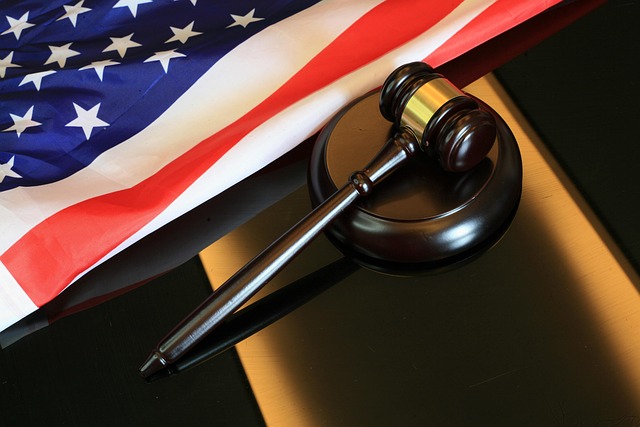Environmental Crime Trials are powerful tools for holding individuals and businesses accountable for ecological violations, with severe legal consequences including financial penalties and indictment. To avoid penalties in Environmental Compliance Cases, entities must adopt proactive measures such as thorough record-keeping, adherence to regulations, and transparency. Strategic legal representation focusing on robust defenses is crucial, involving understanding the investigative process, engaging experienced counsel, conducting fact-finding, consulting expert witnesses, and documenting compliance efforts. Recent high-profile trials have shown that transparency, proactive compliance, and strong legal defense can significantly impact outcomes, encouraging businesses to prioritize environmental accountability and avoid penalties.
Environmental Crime Trials: Unraveling the Legal Battle for a Sustainable Future. In an era where environmental preservation is paramount, understanding legal proceedings becomes crucial. This article explores ‘Understanding Environmental Crime Trials: A Legal Perspective’, shedding light on common compliance violations and strategic defenses. We delve into ‘Avoiding Penalties in Environmental Compliance Cases’, offering insights through case studies that showcase successful litigation. By analyzing these aspects, we aim to empower stakeholders to navigate environmental regulations effectively.
- Understanding Environmental Crime Trials: A Legal Perspective
- Common Types of Environmental Compliance Violations
- Strategies to Strengthen Defense and Avoid Penalties
- Case Studies: Success Stories in Environmental Litigation
Understanding Environmental Crime Trials: A Legal Perspective

Environmental Crime Trials offer a unique legal perspective on holding entities and individuals accountable for environmental violations. These trials are designed to enforce environmental laws and regulations, ensuring that businesses and people adhere to standards aimed at preserving ecosystems and public health. Understanding these trials involves recognizing the intricate interplay between corporate and individual clients, where both can face consequences, including financial penalties and, in severe cases, indictment.
Avoiding penalties in Environmental Compliance Cases requires a proactive approach, involving meticulous record-keeping, adherence to regulations, and transparency. Philanthropic and political communities play significant roles by advocating for stringent environmental laws and supporting initiatives that promote sustainable practices. This collective effort helps create a framework where corporate and individual clients can navigate the legal landscape, aiming to avoid indictment while upholding environmental stewardship.
Common Types of Environmental Compliance Violations

Environmental Crime Trials often revolve around common types of compliance violations that range from air pollution to water contamination and waste management neglect. These violations can include unlawful emissions of toxic substances, unauthorized discharge of pollutants into water bodies, failure to report incidents of environmental harm, and disregard for safety protocols designed to protect ecosystems and public health. Companies and individuals found guilty of such infractions face significant legal repercussions, including hefty fines and prison sentences.
Avoiding penalties in Environmental Compliance Cases is not impossible but requires a robust understanding of regulatory frameworks and proactive measures. White-collar defense strategies often involve meticulous documentation, transparent reporting, and adherence to strict environmental policies. Furthermore, companies can foster a culture of environmental stewardship across the country by engaging philanthropic and political communities, thereby promoting sustainable practices and reducing the likelihood of non-compliance that could lead to legal troubles.
Strategies to Strengthen Defense and Avoid Penalties

In environmental crime trials, one of the key challenges for defendants is navigating the complex landscape of regulations and ensuring robust defenses. A strategic approach to legal representation is paramount to avoiding penalties and protecting interests. Effective strategies involve a comprehensive understanding of all stages of the investigative and enforcement process. By proactively engaging experienced legal counsel adept in environmental law, companies can mount strong general criminal defense arguments. This includes thorough fact-finding, expert witness consultation, and meticulous documentation of compliance efforts.
Defendants should aim to demonstrate their commitment to environmental stewardship and due diligence. Such actions may include providing evidence of regular training for employees on environmental regulations, implementing robust internal controls, and keeping detailed records of all operations. These proactive measures can help secure a complete dismissal of all charges, especially if the company can prove that it acted in good faith and followed industry best practices.
Case Studies: Success Stories in Environmental Litigation

In recent years, several high-profile environmental crime trials have acted as success stories for litigating corporate accountability. These cases highlight the power of jury trials in holding respective businesses responsible for their actions and inavoiding penalties in environmental compliance cases. For instance, a major corporation was found liable for contaminating local water sources, leading to significant fines and a restoration effort that revitalized the ecosystem.
Another notable case involved a white-collar defense strategy where a company successfully argued for leniency by demonstrating its proactive measures to comply with environmental regulations. This approach not only reduced the penalties but also showcased their commitment to environmental stewardship. These success stories serve as a reminder that transparency, proactive compliance, and effective legal representation can significantly influence the outcomes of environmental litigation, ultimately fostering a culture of accountability in business practices.
Environmental Crime Trials play a pivotal role in ensuring corporate accountability for ecological damage. By understanding legal perspectives, recognizing common compliance violations, and adopting strategic defenses, organizations can effectively navigate these cases. The case studies presented highlight successful environmental litigation outcomes, emphasizing the importance of proactive measures to avoid penalties and foster sustainable practices. Through learning from both legal frameworks and real-world examples, businesses can contribute to a greener future while mitigating environmental risks.






